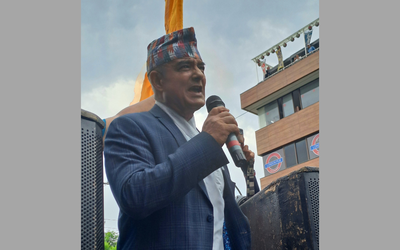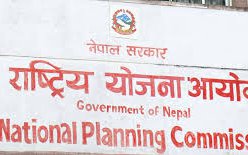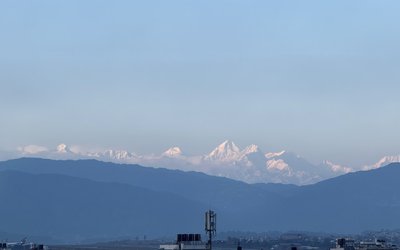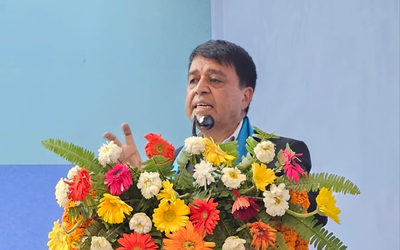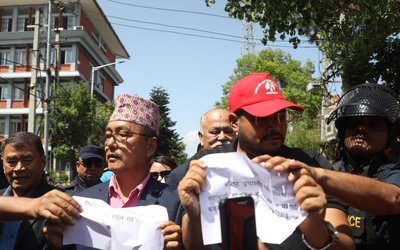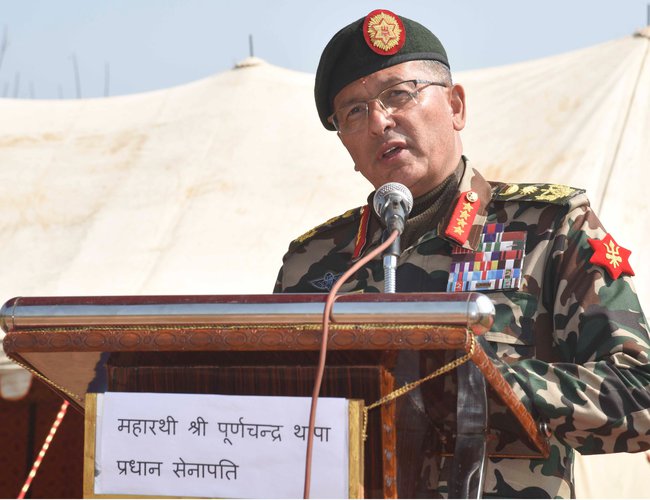
Just two days before Nepal Army Day, Chief of Army Staff (COAS) General Purna Chandra Thapa has called upon army officers to be ready to thwart any move against national interest and independence. He directed all his officers to take countermeasures to contain any move against the country. He said that it is a constitutional duty of the Nepal Army to foil all attempts against the nation and national interest.
COAS General Thapa’s statement delivered at the closing of two-day workshops of senior and high ranking officers shows the Nepal Army’s continual commitments towards the independence and sovereignty of Nepal.

From the unification of Nepal till now, Nepal Army continues to be the main pillar of Nepal’s independence and sovereignty constantly watching hostile acts against the country and its existence. Groomed in such a solid organization, COAS General Thapa carries on the responsibility to defend the nation handed over from generation to generation.
Nepal Army has been celebrating Nepal Army Day for a long time on the day of Shiva Ratri, the birthday of Lord Shiva and religiously important day for Hindus all over the world.

For the Nepal Army, the day has special significance. Nepal Army recalls its past achievement, present state, and glory of the organization for future generations. On this day, Nepal Army demonstrates its capability, capacity, and areas of work to the people.
"Nepal Army Day is the day to recall achievements and contributions to glorify the institution. Through this we want to disseminate past and present achievements to the future generation," said Brigadier General Bigyan Dev Pandey, director of the Directorate of Public Relations and Information and spokesperson of Nepal Army. "During the day, the Nepal Army has been organizing programs to demonstrate its capability and works."
Although Nepal has seen many upheavals and transformations from time to time, the role of the Nepal Army continues to be defending the border, serving the people at the time of disaster and crisis, preserving nature and national parks and enhancing Nepal’s image through international peacebuilding.
Whether in the peacetime or natural and unnatural upheavals, the ranks and files of the Nepal Army continue to carry the above roles and duties. In recent times, it has been carrying additional responsibility in nation-building.
Nepal Army in Development
Nepal Army has a long history in supporting the government to complete the basic infrastructure like roads from very early days. Involved in the first highway construction, namely of Kanti-Rajpath, linking Kathmandu to southern plain in 1953, Nepal Army has completed several highways in a cost-effective manner.

Whether it is the construction of Jumla highway or Humla Road and the recent opening of the track of Syapphrubesi road, Nepal Army has proved its capacity to build cost-effective and high-quality roads.
Having completed many difficult strategic roads of over 400 kilometers in length, the Nepal government handed over the construction of one of the most important national projects, Kathmandu-Terai/ Madhesh Expressway to Nepal Army.
With its strategic significance, the Nepal Army has been working to complete the work of national pride projects related to infrastructure. With its own equipment and resources, Nepal Army has been working on a track that was opened by it.
The long-awaited Expressway will be constructed along with the pilot track opening which was initially developed by Nepali Army in 2069 BS. The NA is entrusted with this key responsibility due to its reputation and trustworthiness earned by the timely construction of numerous road projects in the past, amidst various hazardous conditions.

The Nepali Army considers this mega project as an exceptionally challenging opportunity since the Expressway has to be designed and built on par with international standards. Therefore, NA has targeted to build the Expressway as an "exemplary state of the art civil construction” in South Asia.
Forever concerned with the wellbeing of the nation, the Nepali Army gladly supports Nepal's quest for development. Today, it is considered as one of the most cost-effective and dedicated bodies for national development in Nepal. The Nepali Army has been utilizing its trained manpower and resources in support of national progress for many decades.
Infrastructure Development
The Army has been instrumental in opening up remote areas through rugged mountainous terrain with a large number of road and bridging projects. The selfless sacrifices of Army personnel and its institutional drive and integrity have made it possible for national planners to maximize the benefits from limited resources. The Nepali Army has played an important role in developing road networks in remote and rugged areas.

The Nepali Army was the major partner in the old Kantipath project linking Kathmandu to the Indian border with 105km road. Kharipati – Nagarkot road, the Trishuli – Somdang, the 88km long Katari – Okhaldhunga Road, the 28km long Hile- Leghuwaghat road, 86km long Salyan - Musikot road, 232km long Surkhet – Jumla road, 91km Baglung – Beni – Jomsong road, the 45km Drabya Shah Marga, 37km long Satdobato – Niwel – Balua road, the 39km long Gorkha - Mankamana road and the 45km long Gorkha – Aarughat - Orkhet road was also built under this program.
Other roads include the 65km Besi Sahar – Chaame road, the 107 km Chhinchu – Jajarkot road, the 112km Jajarkot-Dolpa road, the 31km Devsthal – Chourjahari road, the 145km Musikot – Burtibang road and the 91km Nagma-Gamgadhi road.
Nature Conservation
Along with this, the Nepal Army remains a major force to conserve nature in Nepal. Since 1975, with a mission to protect endangered species, plants, and the natural heritage, the Nepali Army has been responsible for the protection of 12 out of the 22 protected forests. Twelve Battalions and Independent Companies with some 6,778 troops protect forest areas measuring some 9,767 sq km.

The main responsibilities of the Nepali Army in the conservation of nature have been broadly outlined as follows:
Disaster Management
With its expertise and experience, the Nepal Army remains the first force to reach and conduct search and rescue operations in all the disasters. Be it in the earthquake of 2015 or Kosi Flood of 2008 all other major or minor disasters, Nepal Army conducts search and rescue operations protecting the lives of people.

Since the earthquake of 2015, Nepal Army has also participated in rehabilitation works. After the earthquake, the Army built houses and handed them to the victims.
At the government’s request last year, Nepal Army constructed over 500 houses and provided them to the Tornado affected victims of Bara and Parsa district.

In the last earthquake, the Nepal Army demonstrated its full capacity rescuing hundreds of people trapped in the debris. Thus, the Government of Nepal views the Nepali Army as an inseparable agency in Disaster Relief Operations. Examples of the particular suitability and capability of the armed forces to respond effectively to such incidents abound in Nepalese history
In all the disasters, whether small or big, the Nepali Army plays a major role in providing emergency assistance to needy people all over the country - a role that has become even more important in the present context.
Not only in the present, but the Nepal Army has also been playing an important role for a long time. In 1934 a devastating earthquake hit Nepal. The Nepali Army helped evacuate and temporarily house thousands of people. In all the earthquakes, floods and landslides, Nepal Army has been reaching out to support the people.
Nepal Army is one of the foundations of UN Peacekeeping and the Nepalese Army has established itself as a force to provide security to the people. Currently, 5095 officers and soldiers of the Nepal Army are deployed in the UN Peacekeeping Mission in different parts of the world including the Democratic Republic of Congo, South Sudan, Lebanon and other conflict areas.

With his firm statement and guidance, COAS General Thapa has already directed ranks and files of the Nepal Army to fulfill historical responsibility to safeguard the nation and work for the betterment of the people. As COAS General Thapa mentioned in his directives, Nepal Army Day is glorifying an important day in the Nepalese history.


Keshab Poudel
Poudel is the editor of New Spotlight Magazine.
- KUL MAN GHISING: Bowing Down To The People
- Apr 13, 2025
- POLITICAL VIOLENCE: Culture of Impunity
- Apr 11, 2025
- PM OLI MEETS PM MODI: No Progress
- Apr 09, 2025
- PM OLI’S THAILAND VISIT: Flip Flop
- Apr 08, 2025
- FM Dr. Deuba’s India Visit: Mission Aborted
- Mar 26, 2025






